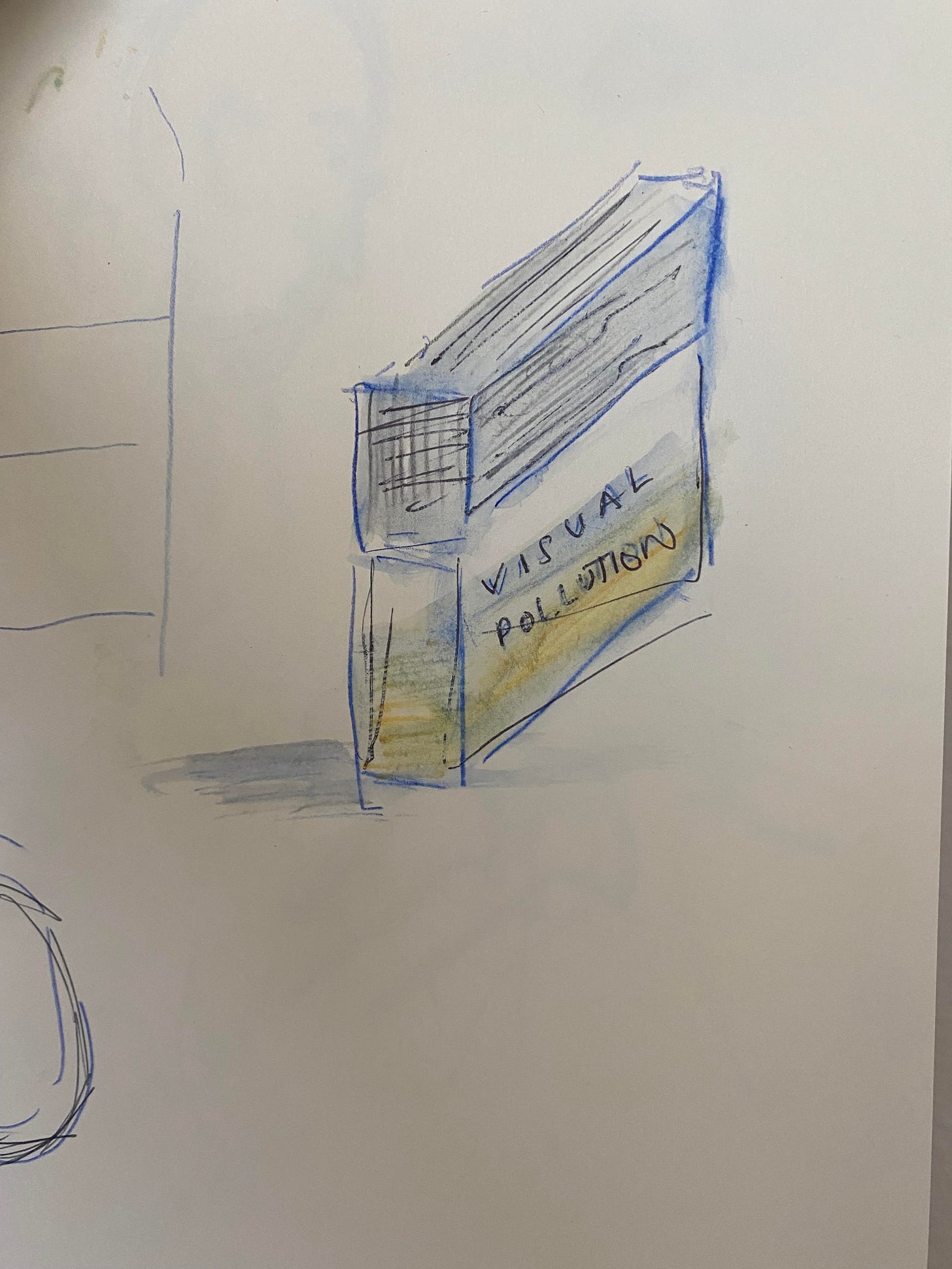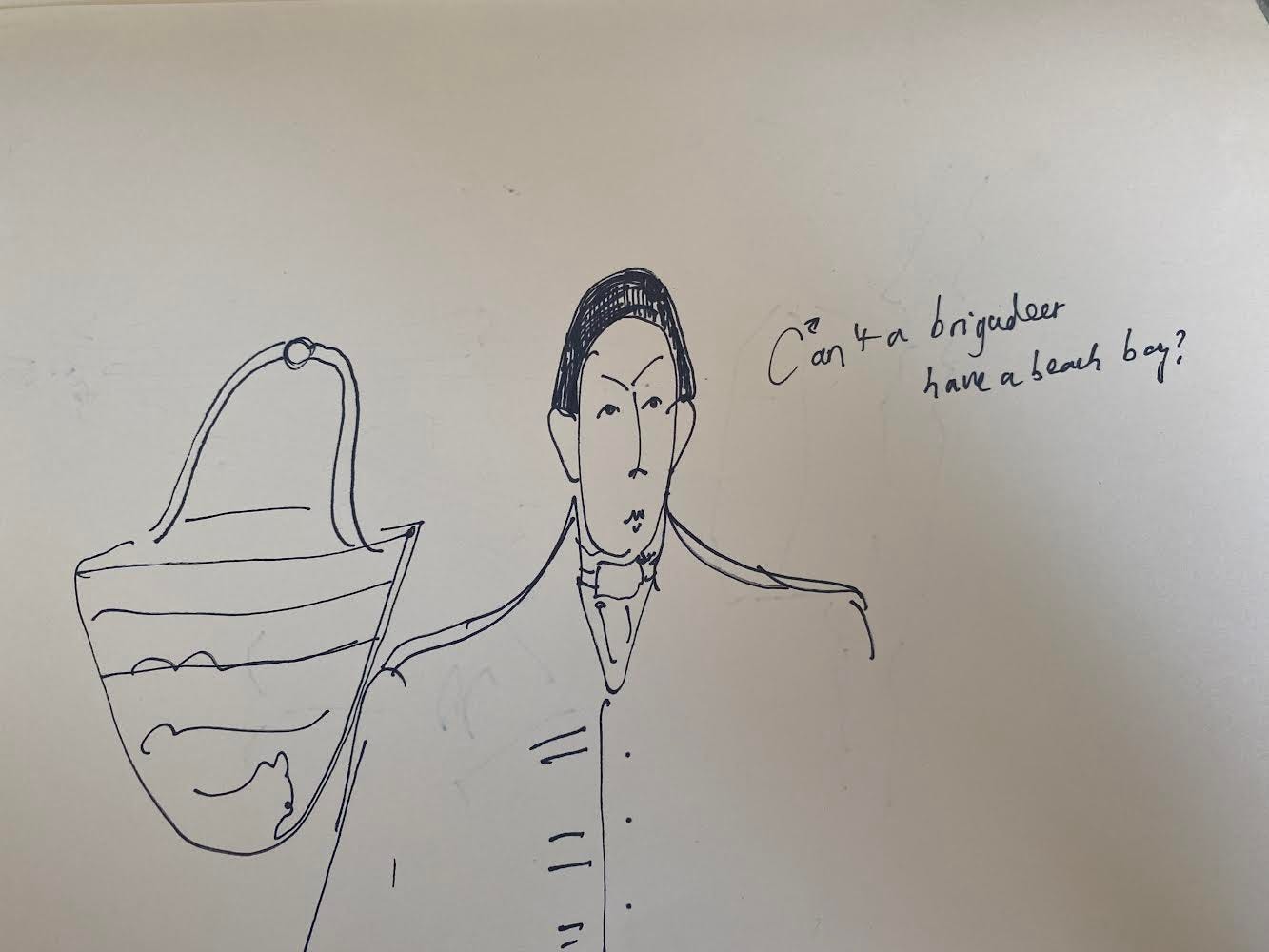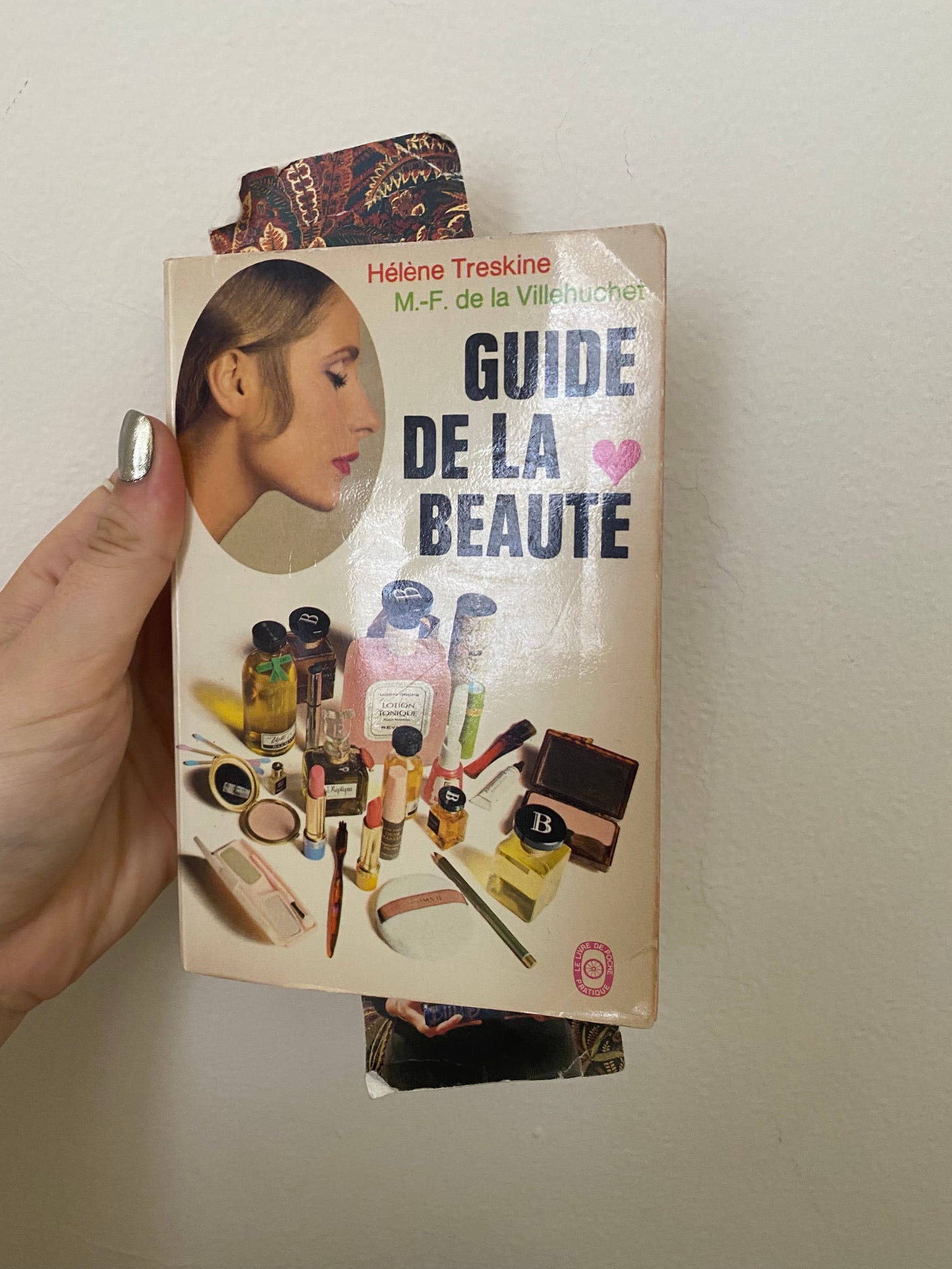Dear Friend,
I hope you have had a good week. If you subscribed since my last letter, bienvenue!—I’m delighted to write to you.
Last week I wrote a bit about La Rentrée, the September back-to-school and back-to-work period in France. This week it’s in full swing: everyone is back from their holidays and the café terraces are full again.
On Wednesday evening, I was sipping on a Perrier in a bar near where I live. The bar is on the corner where a main road turns into two forking back streets. I’d been sitting down for about ten minutes when I heard the distant but unmistakable sound of George Michael’s ‘Freedom’ blasting from a portable speaker with a powerful bass line.
About five seconds later, a dazzling figure span around the corner on an electric unicycle, dressed in a head-to-toe silver sequinned suit and a silver helmet that glinted in the evening sun. His cylindrical bluetooth speaker was hanging from his collar like a medallion. He did a few whirls around the traffic island, gracefully gliding backwards and forwards in the style of a figure skater, before spinning off backwards down the parallel forking street, a serene smile on his face.
There was a short pause and then a middle-aged woman at the table opposite me began clapping very slowly while staring solemnly ahead. She turned to a gaggle of twenty-somethings at the table next to her and said “bon, c’était gracieux, non?” (‘What? It was graceful wasn’t it?’). They agreed, and then everyone went back to their drinks/conversations.
In London, someone would almost certainly have restored the situation to a resting point of normalcy by framing the eccentric spectacle with an ill-at-ease joke like, “you don’t see that every day, eh!”. Everyone present would smile awkwardly and then do their best to avoid eye contact.
Here, beauty is an intrinsic good, important for its own sake. Do what you like, but for god’s sake have a regard for beauty while you do it! I’ll expound this a bit below.
What is the English word for “uglification”?
This week I’ve been to three different public libraries, two near to where I live in Montmartre and another on Rue Mouffetard in the Latin Quarter. There are 58 public lending libraries in Paris and many of them are housed in fabulous buildings, hidden behind big double doors and tucked away in courtyards. The libraries of Paris were not meant to be the main focus of this sub-section when I started writing this paragraph, so I will continue moving towards my point, but I’ll put a little post-script with my Paris library recommendations below, including the newly renovated Bibliothèque Nationale de France (BnF). I enjoy Parisian libraries for many reasons*, but one of the main facilities I make use of is the range of newspapers and magazines on offer for browsing, which gives me the chance to read articles in publications I wouldn’t necessarily buy.
On Friday, I stopped by Bibliothèque Mohammed Arkoun, formerly Bibliothèque Mouffetard-Contrescarpe. It was renamed in hommage to a renowned Algerian scholar, who was professor emeritus of the history of Islamic thought at the Sorbonne. I picked up the weekend magazine of Le Figaro (a right-leaning paper, comparable to The Telegraph in the UK) thanks to its headline: “La France Moche: Comment l’état a laissé enlaidir le pays” or ‘UGLY FRANCE (caps for emphasis): How the state has left the country to uglify’.
Inside was an eight-page spread focused solely on the theme of the lamentable decline into ugliness of the country. The author, a journalist named Charles Jaigu, argued that the trouble all began in 1982 when the Mitterrand government gave local authorities more power over their urban planning. Ever since, local authorities, in particular but not only those with left-leaning constituencies, had been merrily disfigured their own towns, tearing down heritage buildings, adding modern facilities and social housing blocks and—this seemed to be one of the biggest sticklers for the author—constructing a huge number of roundabouts. He wrote with disdain that France apparently has 50,000 roundabouts, representing more than half of the world’s total roundabouts!
What was striking was that his criticism, though laced with some politics, was primary a criticism on aesthetic grounds.
These were some of my favourite quotes:
A photo caption reading: “Visual pollution in a retail park”.
“ [The country has been ] invaded by a stupid and cruel modernity”.
“This France without grace”.
I tried to imagine a world where a journalist in the UK would be commissioned to do a serious investigation into ugliness, and I simply couldn’t.
A spontaneous drawing on the subject of aesthetics, Hannah Meltzer
How things look/vibe aesthetically really MATTERS here, and though the extent of that can border on extreme, I am not against it, it’s just different.
I witnessed the best illustrative example ever a few years ago. It came from the mother of a small boy I passed once on a street in Montmartre. It was raining and the little kid had on a (what I thought was) cute bright-yellow rain mac. His mother turned to him, clearly referring to an earlier tantrum or grievance regarding the raincoat, and said: “See! It IS raining. This is why we had to wear our ugly jackets today!”.
What do you think about the way aesthetics are prized in French culture? How does it compare to other cultures you know? Please write in the comments!
30-second book club
This week I have been reading ‘Ecrire’, an edited selection of writing on the subject of writing by legendary French writer Marguerite Duras. I enjoyed the below quote.
FR: Comme j’écrivais, il fallait éviter de parler des livres. Les hommes ne le supportent pas : une femme qui écrit. C’est cruel pour l’homme. C’est difficile pour tous. Sauf pour Robert A.
EN: As I was writing, it was necessary to avoid talking about books. Men don’t tolerate it well: a woman who writes. It’s cruel for the man. It’s difficult for everyone. Except Robert A.
I don’t know who Robert A is, but god bless him and his tolerant ways.
On the theme of beauty, I have also been reading “Guide de la beauté”, a book I bought from a street-seller at Place de Clichy, originally published in 1970. It’s a hoot. Inside you’ll find tips like essential facial gymnastics moves to keep your skin in top condition. My favourite exercise is the one that involves repeating the French letters ‘U’ and ‘X’ in sets of six, while standing in front of the mirror
I pretended I was reading this book ironically, but then I found myself chopping up lemons to squeeze into my scalp…
If you are interested in French notions of beauty, in particular as pertains to clothing and appearance, I wrote a podcast episode about this for a series called Cerca earlier this year. You can listen to it here.
One day I’d like to explore the idolisation of the ‘French girl’ at greater length in Pen Friend, too.
That’s all for now! (Except I’ve put a bit more about libraries below.)
Please write to me by email, or in the comments, and if you have a friend who you think would like to receive this letter, please share it with them.
Thank you very much for reading all the way to the end.
Yours,
Hannah
P.S.
Libraries
*I find the libraries of Paris to be very special, almost spiritual(!), places. There’s something so nice about being in an environment where nothing is for sale and people who are outside of the median age-range (i.e. young kids and older retired people) and people who are otherwise somewhat marginal in society, are in the majority. Every Paris library I have been to hosts free cultural events, ranging from readings from world-renowned authors to philosophy workshops for children (la France!).
Here are a few very lovely ones:
Médiathèque Françoise Sagan. Housed in an exquisitely renovated former prison, named after famed French novelist. 8 Rue Léon Schwartzenberg, 75010 Paris
Bibliothèque Louise Walser-Gaillard. Inside a beautiful mansion house with a tranquil courtyard. Named after a Belle-Époque poet, who was deaf and an activist for the rights of deaf people, earning her the nickname of “Jeanne d'Arc des sourds-muets” or the ‘Joan of Arc of deaf mutes’. 26 rue chaptal, 75009, Paris.
La BnF The historic part of France’s national library will reopen after a 250-million-euro renovation on September 17 and 18, to coincide with European Heritage Days. There will be a new museum and café and the grand rooms will be spruced up to their splendid best. 5 Rue Vivienne, 75002 Paris










From the central website for the Paris library system, I saw that many offer free language classes & conversation groups. Some specified that the classes were for refugees, but not all. Libraries are truly the best!
From the website:
LEARN FRENCH AND OTHER FOREIGN LANGUAGES
Most libraries provide language-learning methods, but some libraries are identified as "Language Centers" and provide methods for learning a great variety of languages (e.g. French as a Foreign Language, English, German, Spanish, Bengali, Egyptian, Indonesian, Pashto, Persian, Russian, Romanian), as well as books, reviews and audio documents in foreign languages.
Some libraries also organize French conversation sessions for adults as a learning aid.
https://bibliotheques.paris.fr/Default/english-read-our-tutorial.aspx
Lovely blog, merci!
Magnifique Hannah, comme d'habitude. I went to a library in the 15th once to work, and had a wonderful time. Unfortunately on the way out of the library, I went to use the bathroom and was confronted with an old man bending over in the process of trying to take his trousers off: full moon. You win some, you lose some